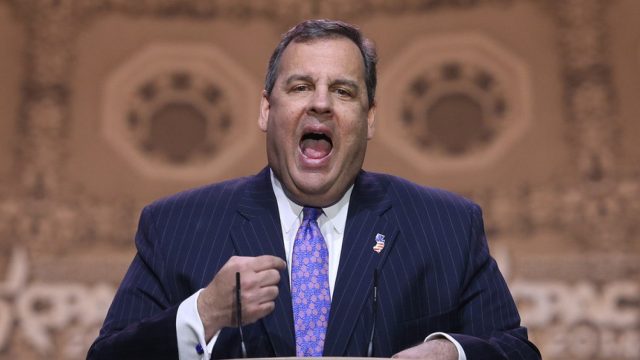Chris Christie Apparently Doesn't Mean What He Says About The Free Market

“We don’t have an income inequality problem, we have an opportunity problem in this country because government’s trying to control the free market,” New Jersey Governor Chris Christie told CPAC last week. “We need to talk about the fact that we’re for a free-market society that allows your effort and your ingenuity to determine your success, not the cold, hard hand of government determining winners and losers.”
If Christie actually believes that, you have to wonder why his administration just ruled that troubled electric car manufacturer Tesla can’t sell their cars directly to citizens, but must instead work through third-party dealerships.
The rule change prohibits automakers from selling directly to consumers, as Tesla does. Instead, it requires them to go through franchised, third-party dealerships, as the big, traditional car companies do. In other words, it requires that the middle-men get their cut. The Christie Administration made the move unilaterally, via the New Jersey Motor Vehicle Commission. It was urged on by lobbyists for the state’s existing car dealerships, which fear the competition. The upshot is that Tesla will be forced to stop selling cars at its two existing dealerships in the state, and drop its plans to build more. It’s unclear what will happen to the employees of those dealerships.
New Jersey is the third state to effectively block Tesla by banning automakers from selling their cars directly. The other two are Texas and Arizona.
In a blog post, Tesla blasted the Christie administration for enacting the rule change administratively, rather than waiting for the legislature to resolve the ambiguity in existing law.
Tesla itself is hardly a paragon of free market virtue, being the recipient of millions upon millions in government subsidies. But there’s a larger principle at play here. Why can’t a willing seller transact with a willing buyer without the government mandating the participation of a third party?
Other than the fact that car dealers and their powerful lobbyists want a cut in the action.
Which isn’t to say that car dealerships are bad. Only that, if we’re going to have a truly free market, a car manufacturer that can build a successful business model around direct sales should be allowed to do so.




